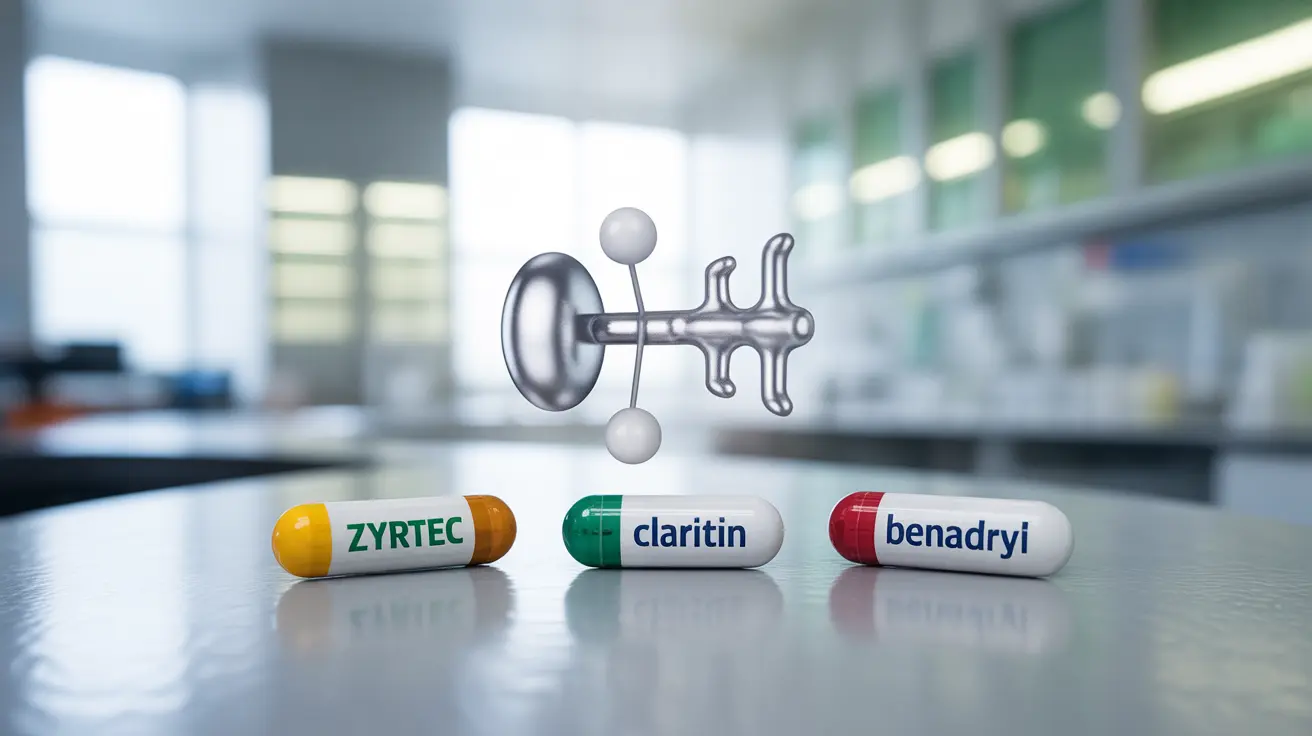Antihistamines are essential medications that help millions of people manage their allergy symptoms effectively. These medications work by blocking histamine, a chemical your body releases during allergic reactions. Understanding how different antihistamines work and their effects can help you make informed decisions about your allergy treatment.
Whether you're dealing with seasonal allergies, pet allergies, or other allergic reactions, choosing the right antihistamine is crucial for achieving optimal relief while minimizing side effects. Let's explore everything you need to know about these important medications.
Types of Antihistamines: First-Generation vs. Second-Generation
Antihistamines are broadly categorized into two main groups, each with distinct characteristics and benefits:
First-Generation Antihistamines
First-generation antihistamines, such as diphenhydramine (Benadryl), were the earliest developed and have been used for decades. These medications are known for:
- Rapid onset of action
- Significant drowsiness as a side effect
- Shorter duration of action (4-6 hours)
- Greater likelihood of affecting coordination and cognitive function
Second-Generation Antihistamines
Newer, second-generation antihistamines like cetirizine (Zyrtec), loratadine (Claritin), and fexofenadine (Allegra) offer several advantages:
- Minimal sedating effects
- Longer-lasting relief (24 hours)
- Fewer cognitive side effects
- Better safety profile for long-term use
Duration and Effectiveness of Common Antihistamines
Different antihistamine medications provide varying durations of relief:
- Cetirizine (Zyrtec): 24-hour relief, begins working within 1 hour
- Loratadine (Claritin): 24-hour relief, may take 1-3 hours to reach full effect
- Fexofenadine (Allegra): 24-hour relief, starts working within 1-2 hours
- Diphenhydramine (Benadryl): 4-6 hour relief, works within 15-30 minutes
Common Side Effects and Safety Considerations
While antihistamines are generally safe, they can cause various side effects that users should be aware of:
Common Side Effects
- Drowsiness (especially with first-generation antihistamines)
- Dry mouth
- Blurred vision
- Constipation
- Difficulty urinating
- Dizziness
Special Precautions
Certain groups should exercise extra caution when using antihistamines:
- Elderly individuals
- People with glaucoma
- Those with liver or kidney problems
- Pregnant or nursing women
- Individuals with chronic medical conditions
Drug Interactions and Alcohol
Antihistamines can interact with various substances and medications. Understanding these interactions is crucial for safe use:
Medication Interactions
- Antidepressants
- Anti-anxiety medications
- Muscle relaxants
- Other allergy medications
- Some blood pressure medications
Alcohol Considerations
Combining antihistamines with alcohol can increase drowsiness and impair coordination. This is especially dangerous with first-generation antihistamines.
Frequently Asked Questions
Q: What are the differences between first-generation and newer-generation antihistamines in terms of side effects and effectiveness?
A: First-generation antihistamines typically cause more drowsiness and have shorter duration (4-6 hours), while newer-generation antihistamines provide 24-hour relief with minimal sedation. Newer antihistamines are generally more effective for daily use due to fewer side effects and longer-lasting relief.
Q: How long do common antihistamines like Zyrtec, Claritin, and Allegra provide relief from allergy symptoms?
A: These second-generation antihistamines typically provide 24-hour relief. Zyrtec and Allegra begin working within 1-2 hours, while Claritin may take 1-3 hours to reach full effect.
Q: What are the possible side effects and precautions to be aware of when taking antihistamines?
A: Common side effects include drowsiness, dry mouth, blurred vision, and constipation. Special precautions should be taken by elderly individuals, those with chronic conditions, and people taking other medications.
Q: Can antihistamines interact with other medications or alcohol, and how should I manage these interactions?
A: Yes, antihistamines can interact with various medications including antidepressants, anti-anxiety medications, and muscle relaxants. Alcohol should be avoided while taking antihistamines as it can increase drowsiness and impairment.
Q: How do I choose the right antihistamine based on my specific allergy symptoms and health conditions?
A: Consider factors such as your typical daily activities, timing of symptoms, other medications you take, and any existing health conditions. Second-generation antihistamines are generally recommended for daytime use, while first-generation options might be suitable for nighttime symptom relief. Consult with a healthcare provider for personalized recommendations.




